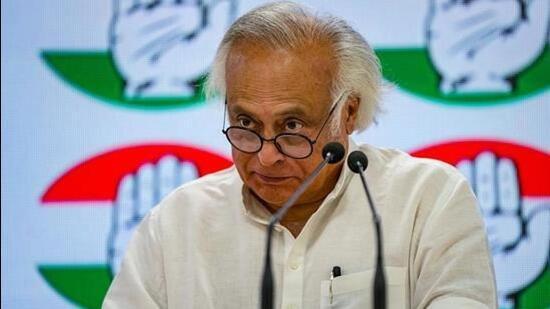
Assault on India’s Constitution: Congress’ Jairam on Waqf Bill
The Waqf (Amendment) Bill, which has been a subject of controversy since its introduction, has drawn sharp criticism from Congress General Secretary Jairam Ramesh. He has gone on record to state that the bill is “an assault on the Constitution of India”. In his scathing criticism, Ramesh has accused the Bharatiya Janata Party (BJP) of employing a strategy to damage the bonds of India’s multi-religious society, thereby creating a permanent state of polarisation for electoral gains.
According to Ramesh, the BJP’s intention is to defame the traditions and institutions of minority communities. He believes that the Waqf (Amendment) Bill is a deliberate attempt to demonise minority communities and create a divide between different sections of the society. This, in his opinion, is a blatant violation of the principles of equality and fraternity enshrined in the Indian Constitution.
The Waqf (Amendment) Bill seeks to repeal the Muslim Waqf Property Act, 1995, and replace it with a new law. The proposed law aims to empower the Central Government to take control of the management and administration of Waqf properties, which are considered sacred by the Muslim community. The BJP has been touting the bill as a move to bring much-needed reforms to the Waqf system, which it claims is plagued by corruption and mismanagement.
However, critics of the bill, including Ramesh, argue that the BJP’s real intention is to undermine the autonomy of the Waqf boards and impose its own brand of Hindu nationalism on the country. They believe that the bill is a deliberate attempt to erode the rights and privileges of minority communities, particularly Muslims, and create a Hindu-majority dominated society.
Ramesh’s criticism of the Waqf (Amendment) Bill is not limited to its alleged intent to damage the bonds of India’s multi-religious society. He has also expressed concerns about the bill’s potential consequences on the country’s social fabric. In his opinion, the bill has the potential to create social unrest and communal tensions, which could have far-reaching consequences for the country’s unity and integrity.
The Congress General Secretary’s criticism of the Waqf (Amendment) Bill has been supported by several other opposition parties, including the Indian National Congress, the Rashtriya Janata Dal, and the Dravida Munnetra Kazhagam. These parties have accused the BJP of using the Waqf bill as a tool to further its own political agenda and create a divide between different sections of the society.
The Waqf (Amendment) Bill is not the first instance of the BJP’s attempts to undermine the autonomy of minority communities. In recent years, the party has been accused of employing various tactics to erode the rights and privileges of minority communities, including the attempted removal of Article 370, which granted special status to Jammu and Kashmir.
The BJP’s controversial Citizenship Amendment Act (CAA) is another example of its attempts to undermine the autonomy of minority communities. The CAA, which grants citizenship to non-Muslim minorities from Pakistan, Bangladesh, and Afghanistan, has been widely criticized for its alleged intent to marginalize Muslim minorities in India.
In conclusion, the Congress General Secretary’s criticism of the Waqf (Amendment) Bill is a timely reminder of the BJP’s attempts to undermine the autonomy of minority communities and create a Hindu-majority dominated society. The bill, in his opinion, is an assault on the Constitution of India and a deliberate attempt to damage the bonds of India’s multi-religious society.
The Indian Constitution, in its preamble, declares India to be a secular and democratic republic. It enshrines the principles of equality, fraternity, and justice, which are the bedrock of a harmonious and cohesive society. The Waqf (Amendment) Bill, if passed, would be a betrayal of these principles and a violation of the fundamental rights of minority communities.
It is essential that the Indian Parliament and the people of India remain vigilant and resist any attempts to undermine the autonomy of minority communities. The Waqf (Amendment) Bill, in the words of Jairam Ramesh, is a “strategy to damage the bonds of India’s multi-religious society” and create a permanent state of polarisation for electoral gains. It is our duty to reject this bill and uphold the principles of equality, fraternity, and justice enshrined in the Indian Constitution.






